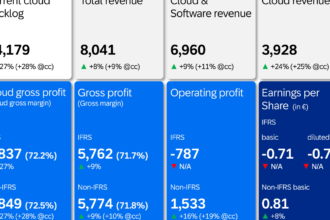Having a reliable counsel at your side can mean the difference between success and failure in the ever-evolving industry of today. Having the correct advice is crucial whether you’re trying to sell a business, purchase a new home, or invest in stocks. But how can you be sure you’re choosing an advisor who will look out for your best interests when there are so many of them available? Here are six suggestions to locate reliable consultants for market buying and selling.
1. Understand Your Needs
Before you even start looking for an advisor, it’s crucial to have a clear understanding of what you need. Are you looking for someone with expertise in real estate, financial markets, or business sales? Identifying what you need help with will narrow down your search and make it easier to find an advisor with the right expertise.
2. Ask for Recommendations
Leveraging recommendations is a powerful strategy in the quest for a trusted advisor. Don’t hesitate to extend your network by speaking not only with close colleagues, family members, and friends but also with relevant professional contacts you may have in your industry. This broader approach ensures you gather a diverse range of opinions and experiences. Engaging in conversations at industry events, online forums, and professional networking groups can also unveil valuable recommendations you might not find through your immediate circle. When soliciting recommendations, be specific about what you’re looking for in an advisor – be it their expertise in a certain field, their negotiation skills, or their track record in successful transactions. Detailed inquiries will aid in acquiring more targeted and useful feedback.
3. Check Their Experience
When searching for trusted advisors, experience is key. When you find potential advisors, make sure to explore their experience. You should check their website as well as online profiles on LinkedIn or other professional networks to get a sense of their background. Look for information about their past transactions, years in the business, and areas of expertise. This will help you gauge whether they have the necessary knowledge and skills to guide you effectively.
4. Review Their Credentials
In addition to evaluating an advisor’s experience, a thorough review of their credentials is fundamental to establishing their credibility and expertise. Look for certifications, degrees, and licenses relevant to their field of expertise. This could include specific financial advising certifications, real estate brokerage licenses, or other professional qualifications that underscore their knowledge and competency. Furthermore, memberships in reputable professional organizations signify a commitment to ongoing education, ethical standards, and industry best practices. Recognitions such as awards, publications, or leadership roles within these organizations are also indicative of a professional’s standing and reputation in their field. It’s also beneficial to verify these credentials through the issuing institutions or organizations to ensure they are current and valid. Legitimate advisors will not hesitate to provide detailed information about their qualifications and how they relate to their ability to support your needs. Ensuring that an advisor’s credentials are not only impressive but also relevant to your specific requirements provides an additional layer of confidence in their capability to guide you effectively.
5. Schedule a Consultation
Once you’ve narrowed down your list of potential advisors, schedule a consultation with each of them. This will allow you to discuss your needs and see how they propose to help you. Pay attention to how well they listen and how thoroughly they answer your questions. This initial interaction can tell you a lot about their communication style and whether they’re someone you can work comfortably with.
6. Trust Your Instincts
Ultimately, when selecting a trusted advisor, your instincts play a pivotal role. After going through all the due diligence—verifying their experience, credentials, and the strength of their network, and having a consultation with them—take a moment to reflect on your interactions. Did you feel heard and understood? Was there a sense of trust and confidence in the way they communicated with you? Trusting your gut feeling about a person’s character and integrity can often lead you to make the right decision. Remember, this individual will be guiding you through significant financial and business decisions, so it’s important that you feel comfortable and confident in their ability to serve your best interests.
Finding a trusted advisor requires careful consideration and research. By understanding your needs, seeking recommendations, checking their experience and credentials, scheduling a consultation, and assessing their network, you can increase your chances of finding someone who will provide valuable guidance. Remember, a trusted advisor plays a crucial role in helping you make informed decisions, so take your time to choose someone who truly aligns with your goals and values. The right advisor can be a game-changer, opening doors to opportunities and steering you away from potential pitfalls. With these tips, you’re well on your way to finding an expert who can help you successfully navigate the complexities of buying and selling in the market.












